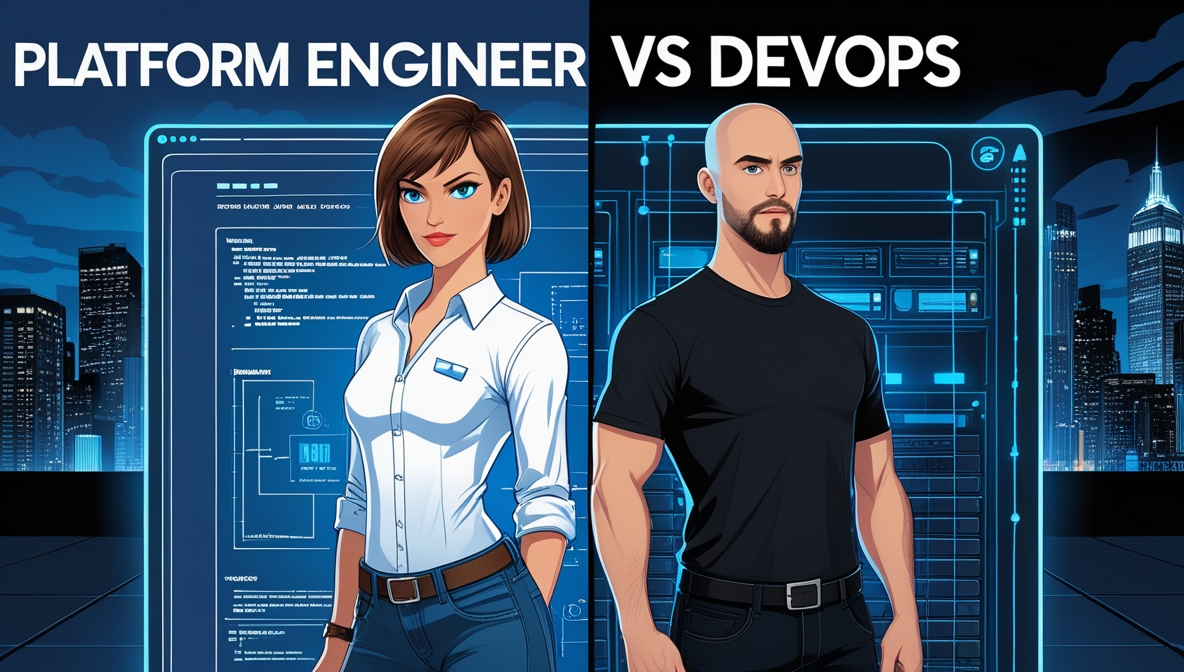What is a Platform Engineer?
The Platform Engineer position has gained great prominence in the market, following the natural evolution of DevOps. But what really differentiates this role and why is it so valued?

Just as DevOps was the evolution of SysAdmin, Platform Engineer represents the evolution of DevOps, adding a more structured approach to solve productivity and scalability challenges within companies. But to stand out as a Platform Engineer, it's essential to bring real value to the organization. Let's understand how this happens.
When we talk about evolution, we're talking about the next stage in the career.
What Does It Mean to Bring Value to the Company?
We almost always need to study and delve into different technologies to create solutions. This knowledge, however, leaves with you when you leave the company. No matter how much we document processes, most of the expertise is lost, taking along the investment made by the organization in your development.
For the company, the true value isn't just in what you deliver, but in your expertise in a lasting way: solutions that increase productivity, simplify processes, and eliminate blockers.
For example:
Kubernetes Specialist: Instead of requiring others to learn how to configure clusters from scratch, create a service that allows developers to create and manage clusters or deploy applications without needing to understand all the tool's complexity.DBA: Automate the creation of production-ready databases, incorporating best practices and advanced configurations, avoiding the process depending on manual tasks.Software Architect: Design templates or frameworks that help teams start projects with well-defined quality standards, accelerating development.
The Essence of Platform Engineer: Productivity and Scalability
Unlike a traditional model based on tickets and individualized support, which is slow and not scalable, the Platform Engineer focuses on creating internal products that can be consumed autonomously by teams. This includes:
- Unified APIs: Interfaces that aggregate functionalities from different areas, allowing easy integration with other systems.
- Internal Portals: Tools like Backstage or Port help create intuitive graphical interfaces so teams without deep technical knowledge can easily use the services.
- Automated Solutions: Pipelines, provisioning tools, and automated configurations that eliminate the need for repetitive manual operations.
Encoding Experience
The Platform Engineer essentially encodes their own experience, transforming accumulated knowledge into replicable solutions. This reduces the need for other professionals to learn each tool or process in depth, allowing them to focus on delivering results.
For example, when a specialist creates a service that facilitates application deployment or infrastructure configuration, they're not just optimizing their own work—they're ensuring the entire organization benefits from their experience.
The Future of Internal Experience
The Platform Engineer's focus is on internal experience, building a foundation that simplifies processes and improves productivity for all teams. This approach is essential to keep up with the growing demand for scalability and efficiency in modern companies.
By unifying technical knowledge into reusable solutions and creating an ecosystem of intuitive tools, the Platform Engineer becomes a fundamental pillar for the organization's success.
The Platform Engineer's role is to unlock teams' potential and ensure the focus is where it really matters: delivering value to the business.